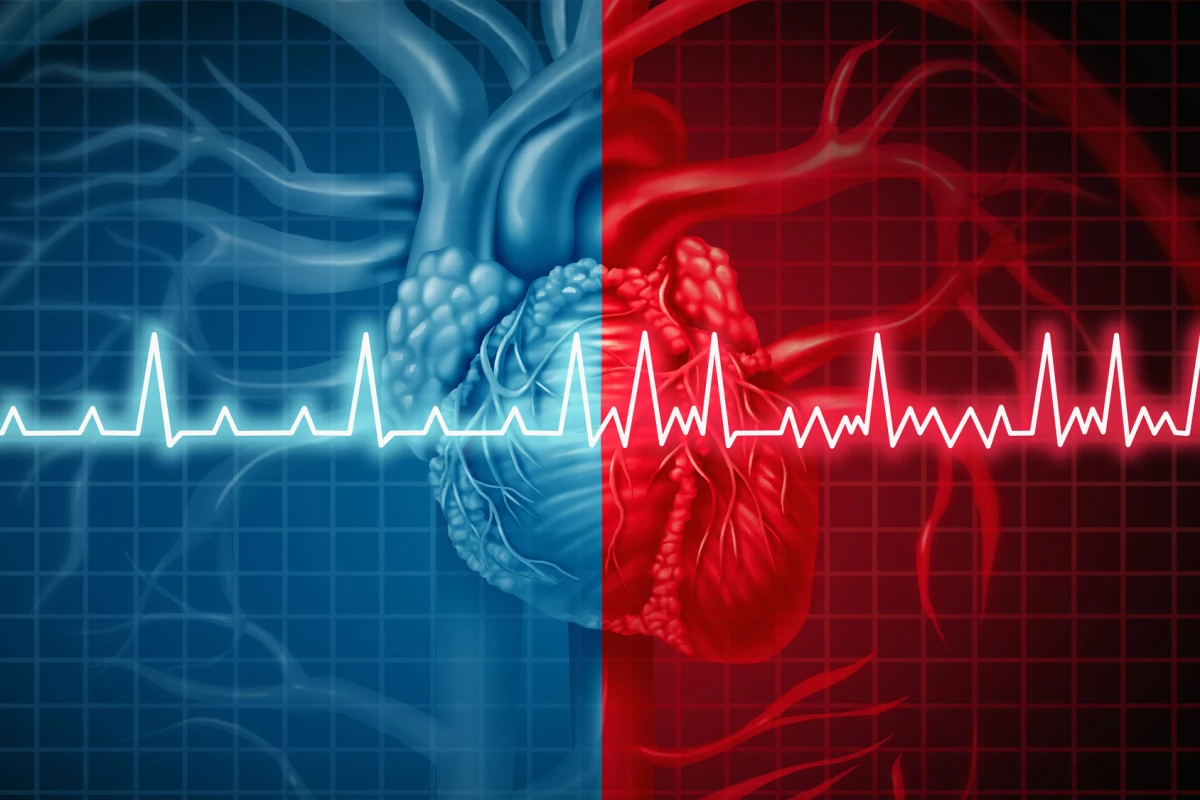AI trained on simple heart rate data can predict an episode of the most common heart rhythm disorder, atrial fibrillation, 30 minutes in advance, new research has shown. With plans for it to be incorporated into a smartphone so it can analyze data from a smartwatch, the model would act as an early warning system.
The most common heart rhythm disorder, atrial fibrillation (AF), significantly increases emergency department presentations and the risk of other diseases like stroke and dementia. The condition occurs when the heart’s upper chambers (atria) beat chaotically, out of sync with the lower chambers (ventricles), producing an irregular, often very rapid, heart rhythm.
Reverting a patient from AF back to regular sinus rhythm can require intensive interventions such as cardioversion, delivering a low-energy shock to ‘reset’ the heart’s conduction system. (Yes, it’s the same device used in medical programs, accompanied by a cry of “CLEAR!”) So, being able to detect an episode of AF before it happens would enable early interventions that might improve patient outcomes.
Researchers from the Luxembourg Center for Systems Biomedicine (LCSB) at the University of Luxembourg have published a study wherein they trained a deep-learning model to accurately predict, 30 minutes ahead of time, when a person will go into AF.
At present, electrocardiography (ECG) can only detect AF right before it occurs, so it can’t be considered an early warning system.
“In contrast, our work departs from this approach to a more prospective prediction model,” said Jorge Goncalves, head of the Systems Control group at the LCSB and corresponding author of the study. “We used heart rate data to train a deep learning model that can recognize different phases – sinus rhythm, pre-atrial fibrillation and atrial fibrillation – and calculate a ‘probability of danger’ that the patient will have an imminent episode.”
The model, called WARN (Warning of Atrial fibRillatioN), was trained and tested on 24-hour ECG recordings collected from 350 patients at Tongji Hospital, China. The data was classified as sinus rhythm, pre-AF, and AF by cardiologists. To train the model to pick up the signs of pre-AF, the researchers used variability in the interval between R waves (RRI) on an ECG as the main data source.

Taking 30-second RRI samples every 15 seconds, the deep-learning model computed the probability of imminent AF. On the test data (70 patients) and two external validation sets (33 patients), WARN predicted AF onset on average 31 minutes and 33 minutes in advance, with an accuracy of 83% and 73%, respectively.
“[O]ur model has a high performance using only R-to-R intervals, basically just heart rate data, that can be acquired from easy-to-wear and affordable pulse signal recorders such as smartwatches,” said Marino Gavidia, the study’s first author.
The researchers foresee the device being used in smartphones to process the data obtained from a smartwatch. The long-term objective is for patients to be able to continuously monitor their heart rhythm and provide a warning early enough for them to use treatments like oral antiarrhythmic medications to prevent the onset of AF. And, the researchers say, the tech can be personalized.
“Moving forward, we will focus on developing personalized models,” Goncalves said. “The daily use of a simple smartwatch constantly provides new information on personal heart dynamics, enabling us to continuously refine and retrain our model for that patient to achieve enhanced performance with even earlier warnings. Eventually, this approach could even lead to new clinical trials and innovative therapeutic interventions.”
The study was published in the journal Patterns.
Source: University of Luxembourg






